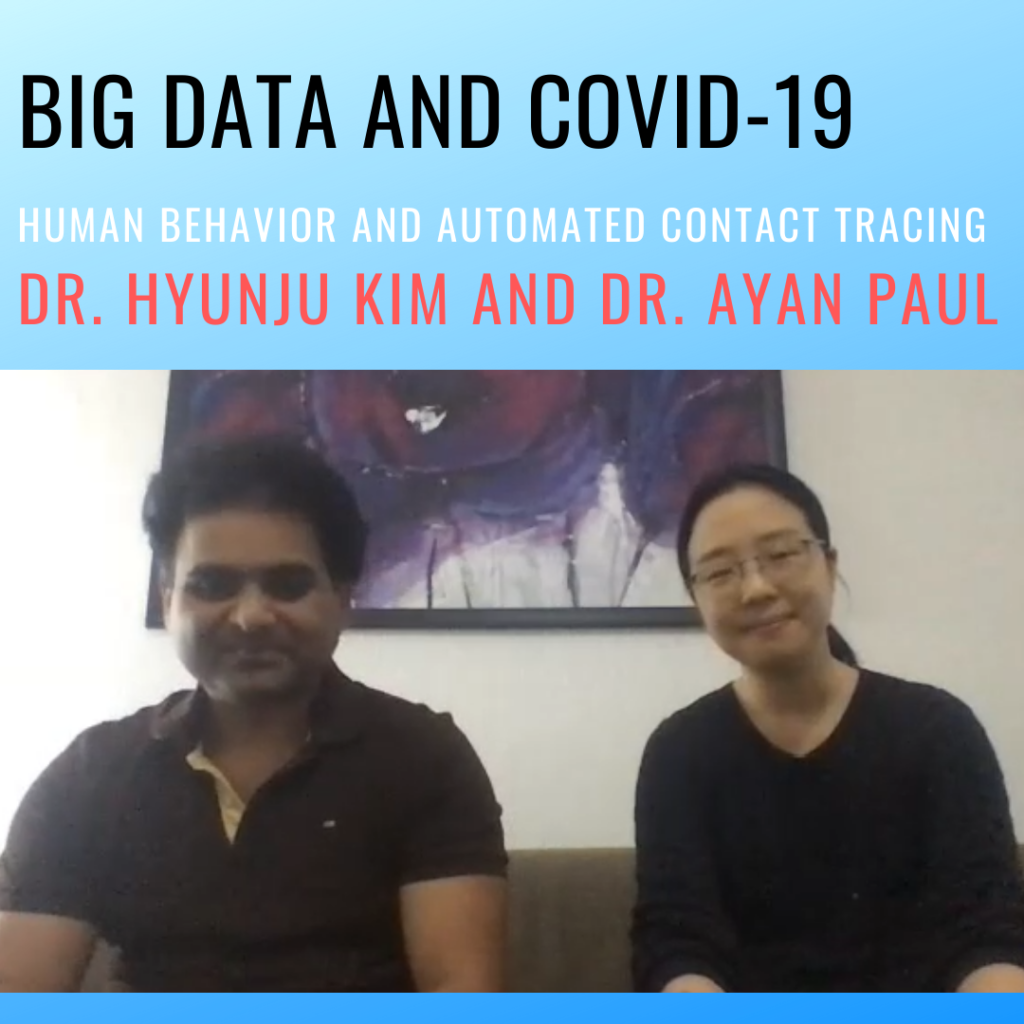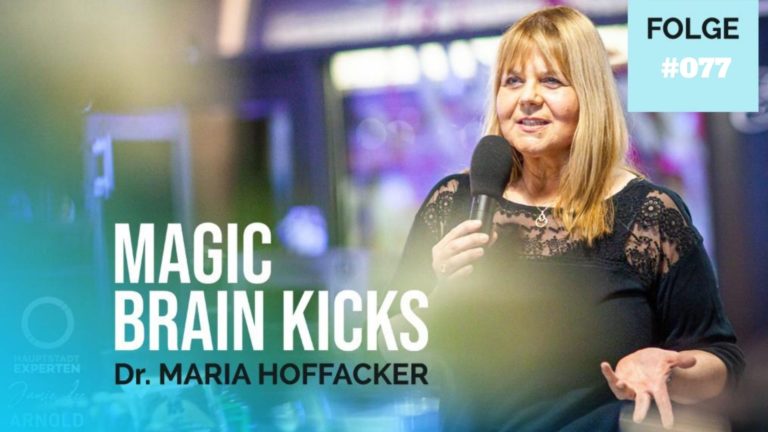Big data and Covid-19 – Interview about human behavior and automated contact tracing with Dr. Hyunju Kim and Dr. Ayan Paul #077
Big data management to understand human behavior, the spread of diseases and the implementation of possible contact tracing – these are the topics that I discussed with the physicists Dr. Hyunju Kim and Dr. Ayan Paul. Both are working on pioneering international research projects to understand and to manage the spread of Covid-19.
Big data management to understand human behavior, the spread of diseases and the implementation of possible contact tracing – these are the topics that I discussed with the physicists Dr. Hyunju Kim and Dr. Ayan Paul. Both are working on pioneering international research projects to understand and to manage the spread of Covid-19. What are the first findings of the new research?
Nearly one year ago we had an inspiring podcast Interview about the Question “What is intelligence? Hyunju and Ayan shared some of their amazing research results. For those who are interested in listening to this podcast episode. It is the podcast number 14. You find it here: LINK.
Now both of them started new researches and studies about a very current topic. They are about the mitigation of viruses and especially about automated contact tracing and the game of big numbers in time of Covid-19. In addition, Ayan co-founded a company that is backed by DESY and is developing a smartphone app to calculate individual risk to COVID-19 based on AI and medical literature.

More Information and the papers you can find here:
1. Automated Contact Tracing: a game of big numbers in the time of COVID-19
https://www.medrxiv.org/content/10.1101/2020.04.22.20071043v2
Abstract
One of the more widely advocated solutions for slowing down the spread of COVID-19 has been automated contact tracing. Since proximity data can be collected by personal mobile devices, the natural proposal has been to use this for automated contact tracing providing a major gain over a manual implementation. In this work, we study the characteristics of voluntary and automated contact tracing and its effectiveness for mapping the spread of a pandemic due to the spread of SARS-CoV-2. We highlight the infrastructure and social structures required for automated contact tracing to work. We display the vulnerabilities of the strategy to inadequate sampling of the population, which results in the inability to sufficiently determine significant contact with infected individuals. Of crucial importance will be the participation of a significant fraction of the population for which we derive a minimum threshold. We conclude that relying largely on automated contact tracing without population-wide participation to contain the spread of the SARS-CoV-2 pandemic can be counterproductive and allow the pandemic to spread unchecked. The simultaneous implementation of various mitigation methods along with automated contact tracing is necessary for reaching an optimal solution to contain the pandemic.
2. Socio-economic disparities and COVID-19 in the USA
https://www.medrxiv.org/content/10.1101/2020.09.10.20192138v1
Abstract:
COVID-19 is not a universal killer. We study the spread of COVID-19 at the county level for the United States up until the 15th of August, 2020. We show that the prevalence of the disease and the death rate are correlated with the local socio-economic conditions often going beyond local population density distributions, especially in rural areas. We correlate the COVID-19 prevalence and death rate with data from the US Census Bureau and point out how the spreading patterns of the disease show asymmetries in urban and rural areas separately and is preferentially affecting the counties where a large fraction of the population is non-white. Our findings can be used for more targeted policy building and deployment of resources for future occurrence of a pandemic due to SARS-CoV-2. Our methodology, based on interpretable machine learning and game theory, can be extended to study the spread of other diseases.
3. App: empowering health decision, delivered by AI – use our smart algorithm securely to check your risk of COVID-19, protect yourself and loved ones.
Contact via LinkedIn:
Hyunju Kim: https://www.linkedin.com/in/hyunju-kim-0b32a3133/
Ayan Paul: https://www.linkedin.com/in/ayan–paul/
Maria Hoffacker: https://www.linkedin.com/in/dr-maria-hoffacker-25373ab/
Video of this Podcast Episode on YouTube: https://www.drmariahoffacker.com/Video77

MAGIC BRAIN KICKS – Happiness and success are no coincidence, but the right use of brain power. The podcast of Dr. Maria Hoffacker – biologist, theologian, educator. In this podcast I will show you how you can really use the infinite potential of your brain, your biological supercomputer. You can expect inspiration and practical applications from modern brain research for your personal success. We talk about how to properly feed your head, heart and stomach so that they become your inner power team with which you can achieve everything. At a time when everything is being digitized and artificial intelligence seems to be taking over everything from us, you will find out how superior your own human brain apartment is when you know how to control it properly. In the weekly podcast episodes you will find specific tools, expert interviews and many experience stories from my own life as a marine biologist, environmental manager, science editor and lecturer More Information: www.Lady-Brain.com
Ich freue mich über Feedback und Fragen:
© Alle Rechte. Dr. Maria Hoffacker
Datenschutz – Impressum – Kontakt

